AITA for yelling at my husband for eating the wrong cookies?
On the surface, arguing over a cookie might seem ridiculous. But anyone who’s ever put time, effort, and love into making something special knows—it’s not just about the cookie. It’s about respect.
That’s the situation OP found herself in after spending hours perfecting a batch of intricately decorated cookies for her best friend’s birthday. She explicitly told her husband—twice—not to eat the six perfect ones. And yet, he ate one anyway. Instead of apologizing sincerely, he laughed it off, told her to “just use another one,” and then gave her the silent treatment for being upset. But is OP really in the wrong here? Or is this about something bigger than just a cookie? Read on.

‘AITA for yelling at my husband for eating the wrong cookies?’
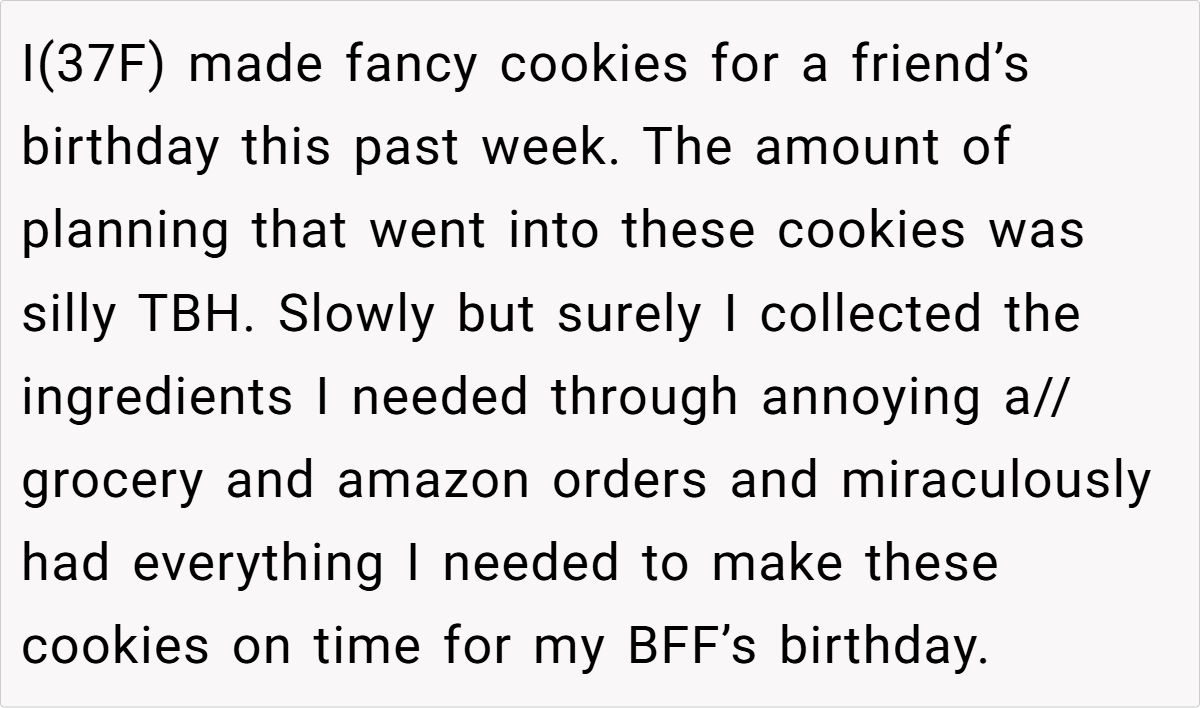
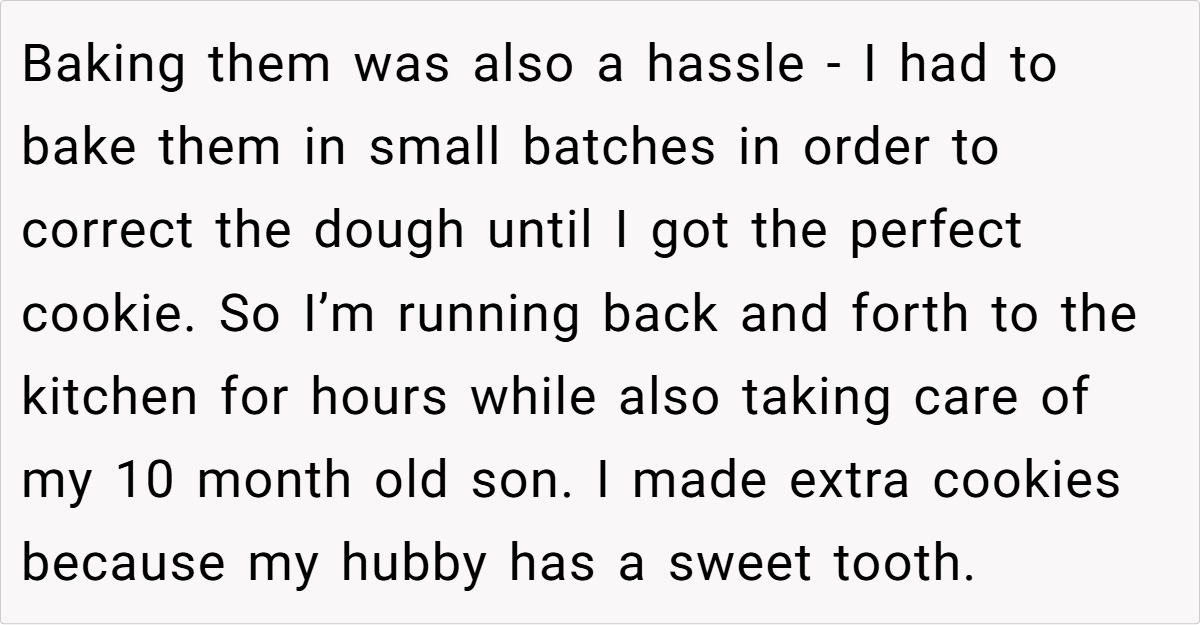
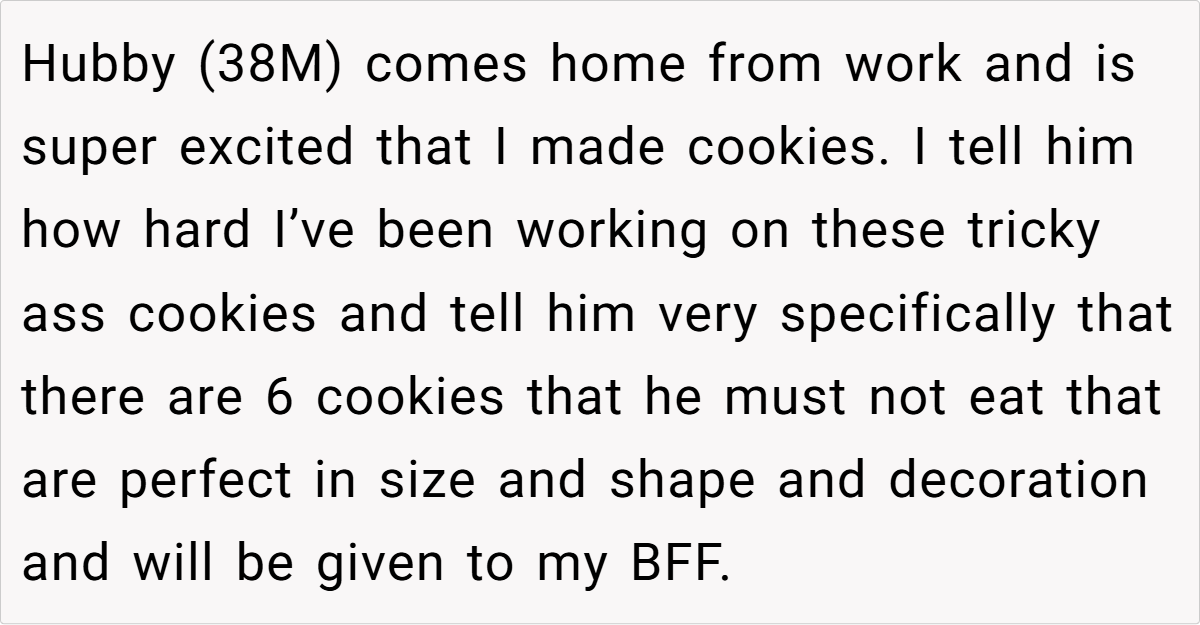
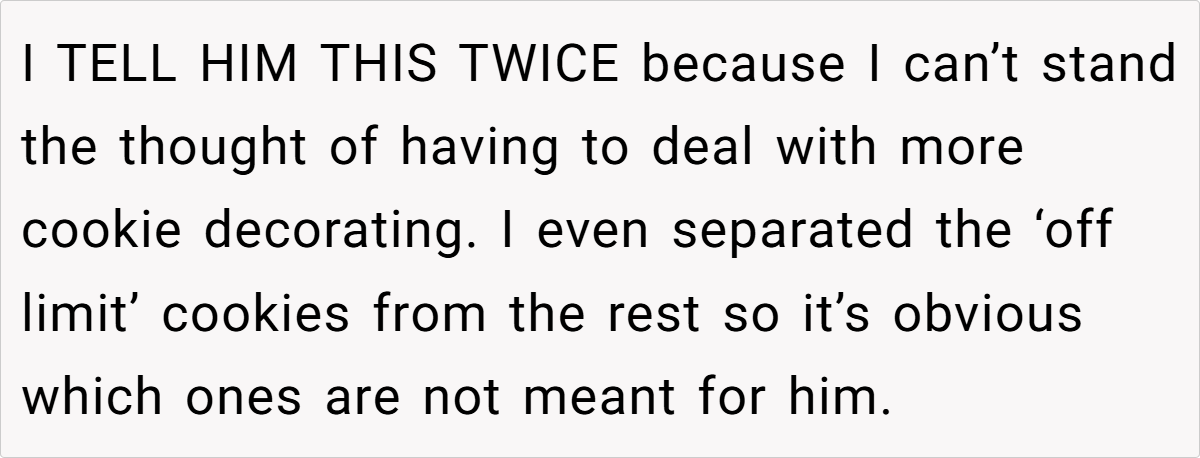


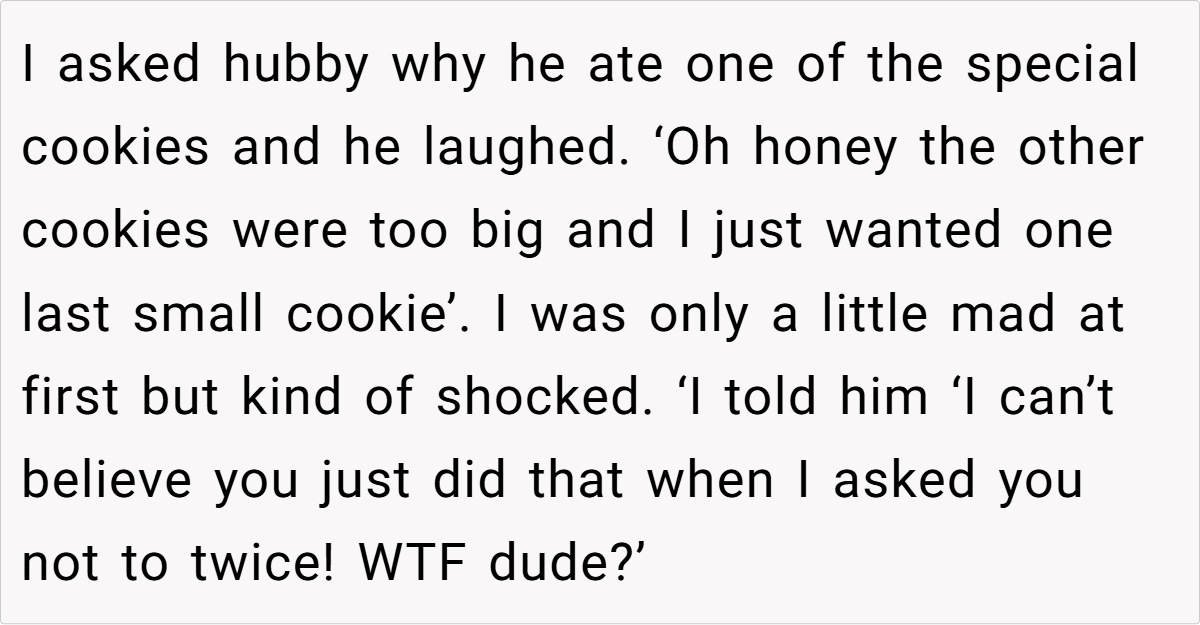

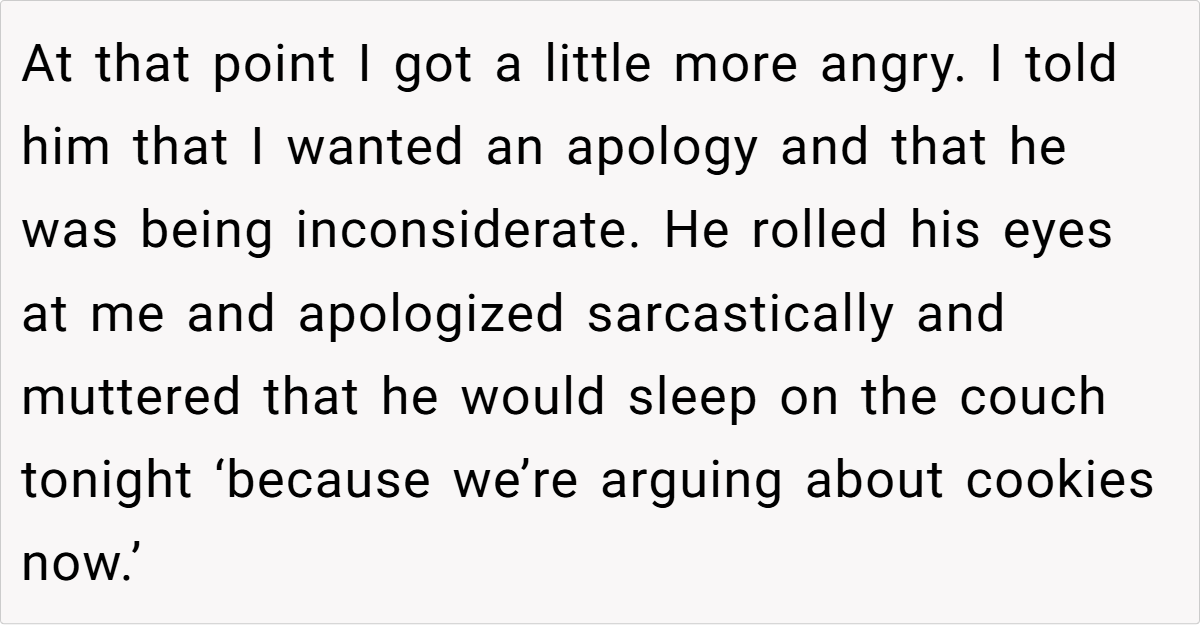


Expert Analysis
At its core, this is not a debate about cookies—it’s about disrespecting boundaries, dismissing effort, and minimizing someone’s feelings.
1. The Pattern of Disregard
One of the biggest red flags in relationships is when a partner repeatedly ignores clear boundaries. OP’s husband acknowledged her request, but still ate the cookie anyway because he wanted to. This wasn’t an accident—it was an intentional choice.
Dr. John Gottman, a psychologist specializing in marital conflict, identifies contempt as one of the leading predictors of relationship breakdown. Contempt happens when one partner dismisses or belittles the other’s feelings, as OP’s husband did by rolling his eyes, sarcastically apologizing, and making OP feel like she was overreacting.
2. The Emotional and Mental Load
OP is juggling homemaking, baking, and caring for a 10-month-old while ensuring the cookies turn out perfectly. Her husband ignored the time, effort, and stress she endured just so he could satisfy a craving.
Psychologist Dr. Darcy Lockman, in her book All the Rage: Mothers, Fathers, and the Myth of Equal Partnership, explains how many women in relationships experience the burden of invisible labor—where their time and energy are taken for granted, and their work is seen as “less important.” OP’s husband eating the cookie and then acting like she was being dramatic reinforces this dynamic.
3. The Gaslighting Tactics
When OP confronted her husband, instead of owning up to his mistake, he:
- Downplayed her feelings (“It’s just a cookie.”)
- Shifted blame onto her (“Are you really mad over something so small?”)
- Punished her with the silent treatment instead of taking accountability.
This is classic gaslighting, a manipulation tactic where someone makes their partner question the validity of their emotions. In reality, OP’s frustration is entirely justified—her husband deliberately ignored her wishes and then made her feel like she was the one being unreasonable.
Key Takeaways for Healthy Relationships
- Respecting small boundaries is crucial. If a partner ignores a small request, it raises concerns about how they handle bigger issues.
- Minimizing someone’s feelings is toxic. Healthy communication means acknowledging and validating emotions, not dismissing them.
- Apologies should be sincere, not sarcastic. A real apology includes acknowledgment, remorse, and a commitment to change.
Gottman Institute – Contempt and Relationship Breakdown (source)
Dr. Darcy Lockman – Invisible Labor in Relationships (source)
Psychology Today – Gaslighting and Emotional Manipulation (source)
Here’s what Redditors had to say:
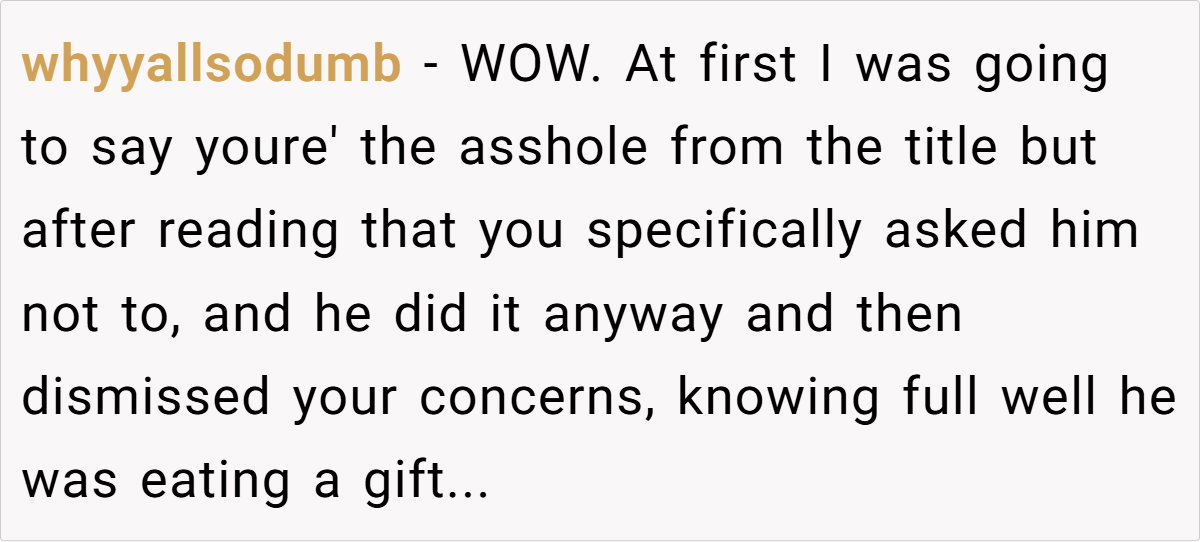



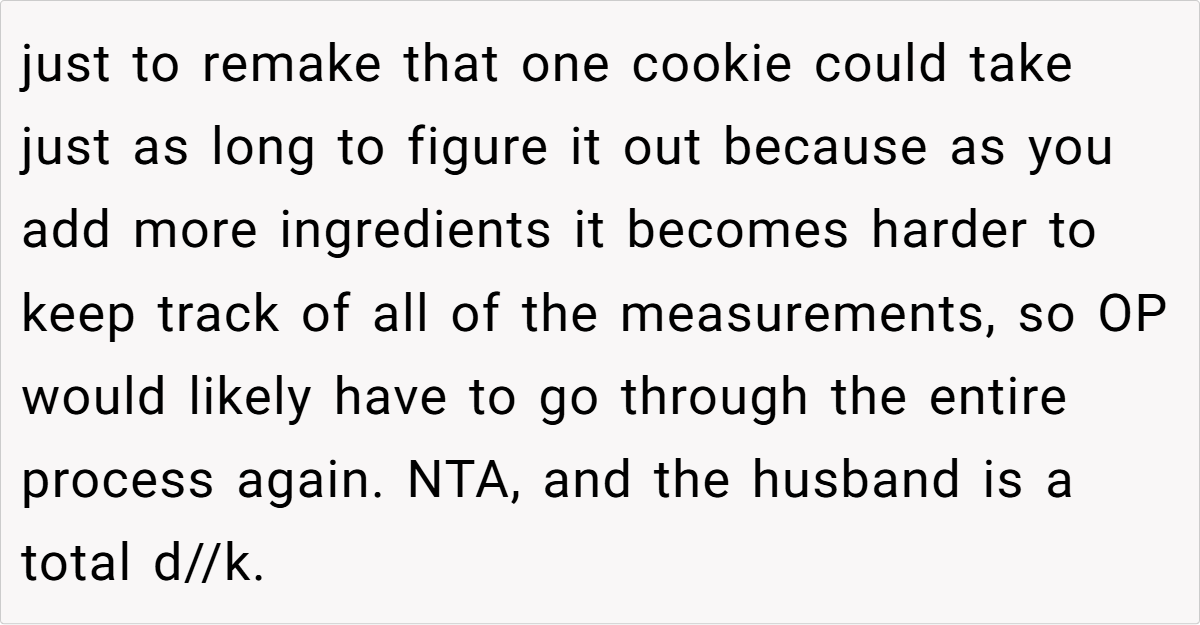


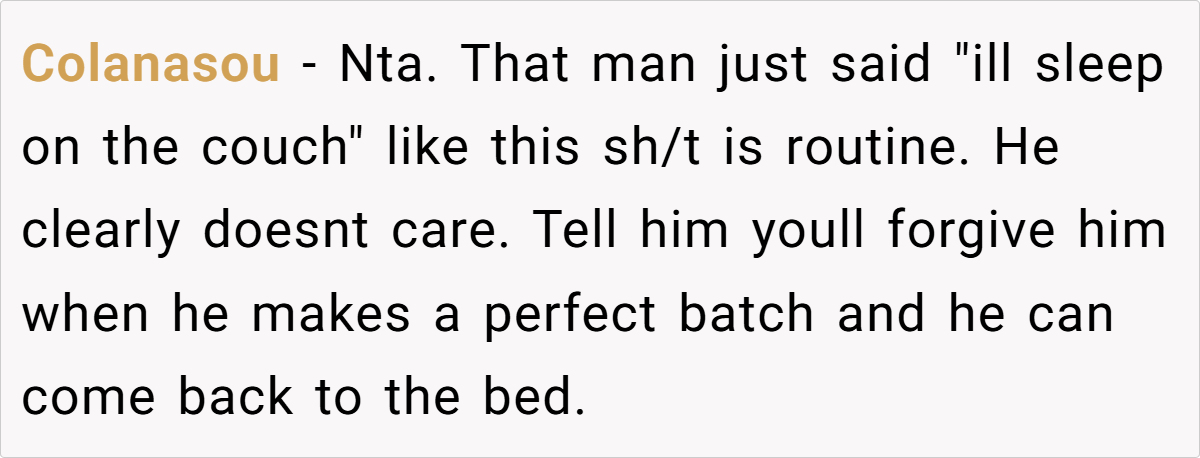

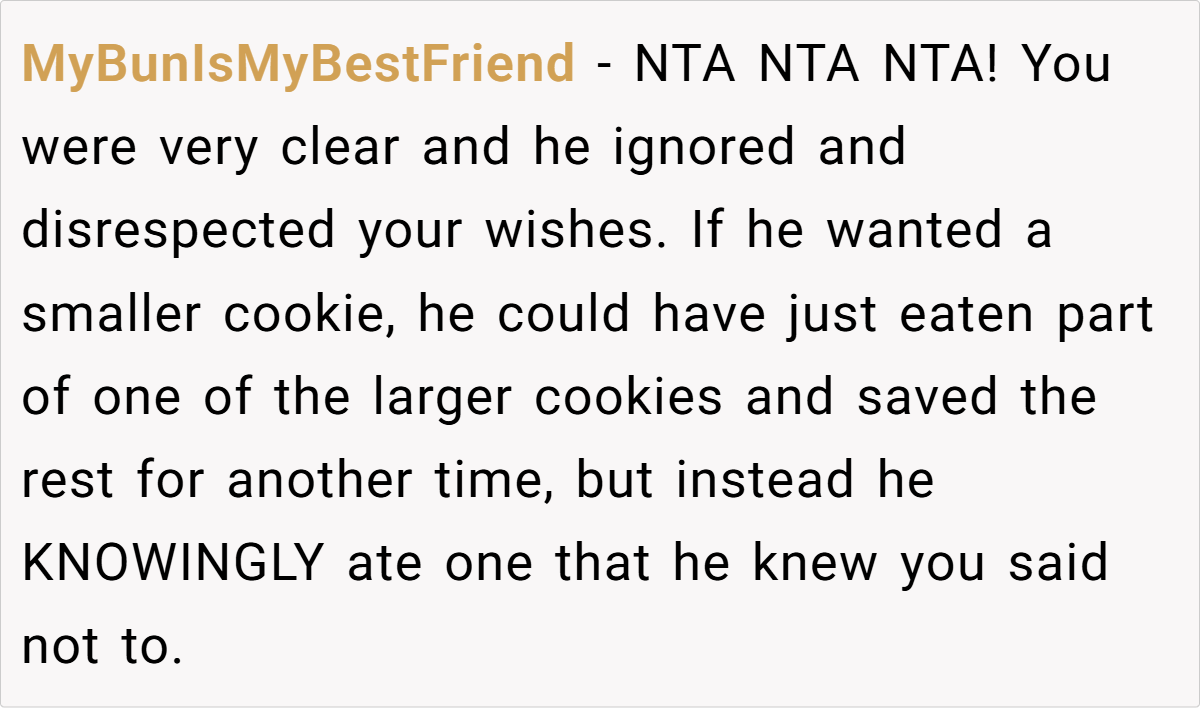


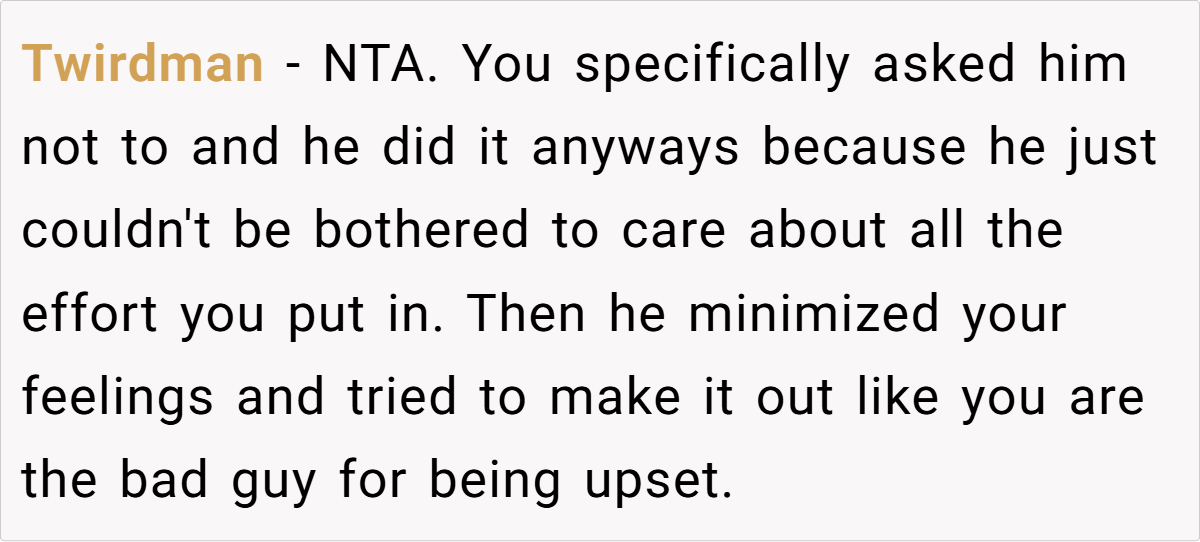


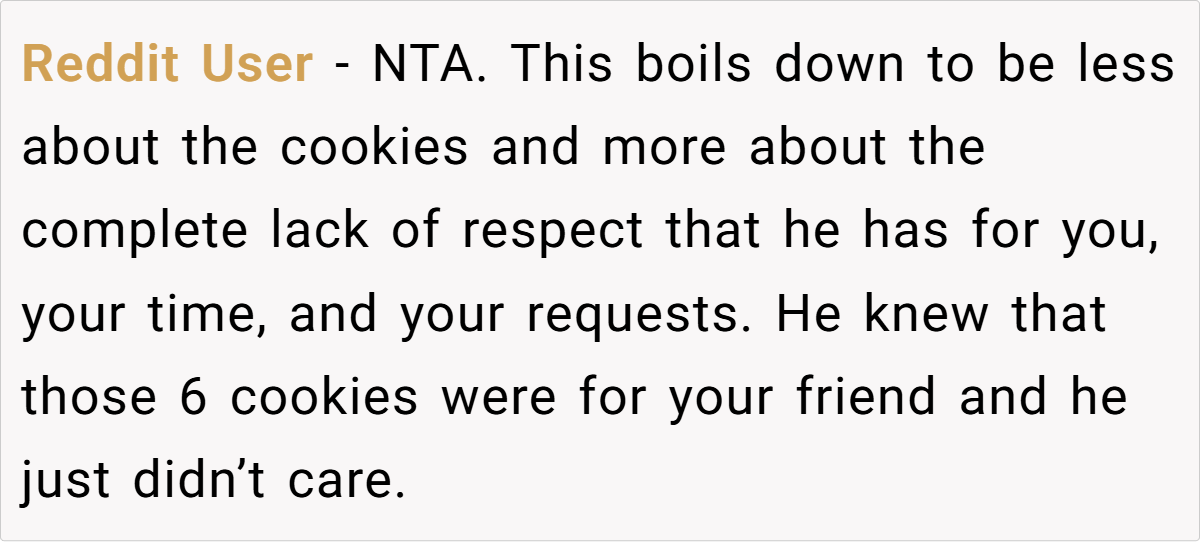
This isn’t about a cookie. It’s about whether OP’s husband respects her time, effort, and requests. He didn’t just eat a cookie—he ignored a clear boundary, laughed at OP’s frustration, and acted like she was unreasonable for expecting him to listen. This type of behavior, if repeated, can lead to a pattern of disrespect that erodes trust over time.
What do you think? Was OP’s husband just being careless, or is this a sign of a bigger relationship issue? Share your thoughts below!

